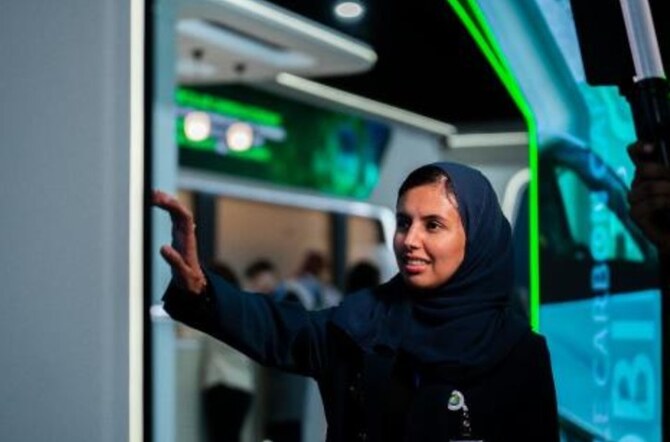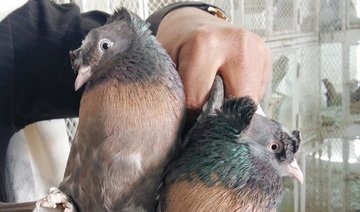BAKU: While COP29, the 29th climate change conference, continues discussions for a 12th day in the capital city of Azerbaijan to elevate health and well-being for people all over the world, sustaining the level of quality of life after the implementation of policies is important.
Sustainability, in general, has emerged as a critical focal point for countries worldwide, and Saudi Arabia is no exception. As the Kingdom moves from a predominantly oil-based economy to a more diverse and sustainable model, the implications for quality of life are profound.
One of the key initiatives driving this change is Saudi Vision 2030, a strategic framework aimed at reducing the country’s dependence on oil and fostering economic diversification.
This vision places significant emphasis on green development, which is essential for enhancing the overall quality of life for residents and citizens in the Kingdom.
The Saudi government is working to create a more resilient and prosperous future through various investments in sustainable urban planning and eco-friendly technologies and projects.
Sustainable urban development is central to enhancing the quality of life. Projects such as NEOM, a futuristic city planned to integrate smart technology and sustainable living, show how urban environments can be designed while keeping growth sustainable even after the completion of the city.
Such projects aim to provide residents with green spaces, efficient public transport and smart infrastructure, all contributing to a higher standard of living.
Aeon Collective is another example that shows the Kingdom’s commitment to raising living standards for people.
The company is an interdisciplinary, non-profit organization based in Riyadh, committed to advancing the concept of sustainability and development in Saudi Arabia, while at the same time focusing on the intersection of social, economic, and ecological well-being.
Aeon Collective is considered a Waqf, which is an Arabic word meaning assets that are donated, bequeathed, or purchased to be held in perpetual trust for general or specific charitable causes that are socially beneficial.
Princess Mashael Saud Al-Shalan, co-founder of Aeon Collective, explained to Arab News during COP29 the concept and objective of the organization.
“As you know, Waqf is one of the oldest legal Islamic structures, (established) almost 1400 years ago,” she said. “The intention was to reorient this legal structure (Waqf) into a space that allowed us to focus on sustainability in the longer run, but in the shorter run try to answer one key basic question, ‘what would it take to align opportunities for socio-economic mobility for individuals through the active action of repairing our planet?’”
Princess Mashael spoke further of the need to reclaim the Islamic framework Amarat Alardh, which, according to her, means “custodianship of the land.”
“It is within our own heritage, our culture, Islamic, Arabic, Saudi, that we have to be there to take care of our fellow citizens, our fellow humans, but importantly, every other being, plant, animal, that we share this planet with,” she said.
Moreover, public awareness and engagement in sustainability practices are being fostered through educational campaigns and community initiatives. By encouraging citizens to adopt sustainable habits, such as recycling and energy conservation, the government aims to create a culture of sustainability that enhances community well-being.
Throughout the conversation, Princess Mashael praised the perspectives Saudi Arabia is bringing to the table of negotiations during this event, yet stressed also the responsibility of individuals to raise the bar of ambition on a national level to ensure that those goals and ambitions are translated on the ground.
In addition, Princess Mashael was a speaker at one of the panels on Wednesday, regarding sustainability in cities.
“Cities tend to not only be the biggest congregators of carbon but also where most of the brains we are trying to attract, who solve these issues, live ... So it is having a mentality that goes beyond scarcity, beyond fear-mongering and eco-anxiety; to a mentality of growth, to a mentality of being able to do.”
Sustainability in Saudi Arabia is not merely a response to environmental concerns; it is a holistic approach to improving quality of life through strategic initiatives in numerous sectors, including urban planning and community engagement; the country is laying the groundwork for a healthier, more sustainable future for its people.
































